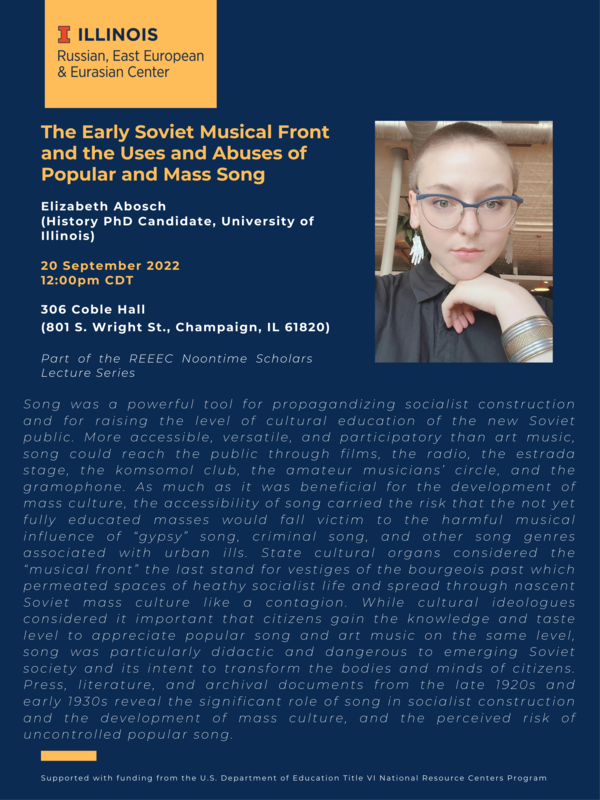REEEC Noontime Scholars Lecture: Elizabeth Abosch

- Sponsor
- REEEC
- Speaker
- Elizabeth Abosch (History PhD Candidate, University of Illinois)
- Cost
- Free and open to the public.
- Contact
- REEEC
- reec@illinois.edu
- Views
- 530
Song was a powerful tool for propagandizing socialist construction and for raising the level of cultural education of the new Soviet public. More accessible, versatile, and participatory than art music, song could reach the public through films, the radio, the estrada stage, the komsomol club, the amateur musicians’ circle, and the gramophone. As much as it was beneficial for the development of mass culture, the accessibility of song carried the risk that the not yet fully educated masses would fall victim to the harmful musical influence of “gypsy” song, criminal song, and other song genres associated with urban ills. State cultural organs considered the “musical front” the last stand for vestiges of the bourgeois past which permeated spaces of heathy socialist life and spread through nascent Soviet mass culture like a contagion. While cultural ideologues considered it important that citizens gain the knowledge and taste level to appreciate popular song and art music on the same level, song was particularly didactic and dangerous to emerging Soviet society and its intent to transform the bodies and minds of citizens. Press, literature, and archival documents from the late 1920s and early 1930s reveal the significant role of song in socialist construction and the development of mass culture, and the perceived risk of uncontrolled popular song.
Elizabeth Abosch is a PhD candidate in Russian and Soviet history at the University of Illinois at Urbana-Champaign. She received a Masters degree in Global, International, and Comparative History from Georgetown University in 2017. Her dissertation explores the history of the criminal and urban song genres in the Soviet Union and the social, cultural, and political functions of song in Soviet society from 1920-1980.